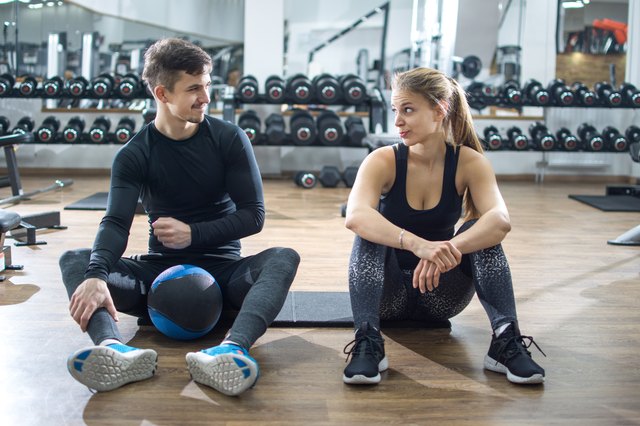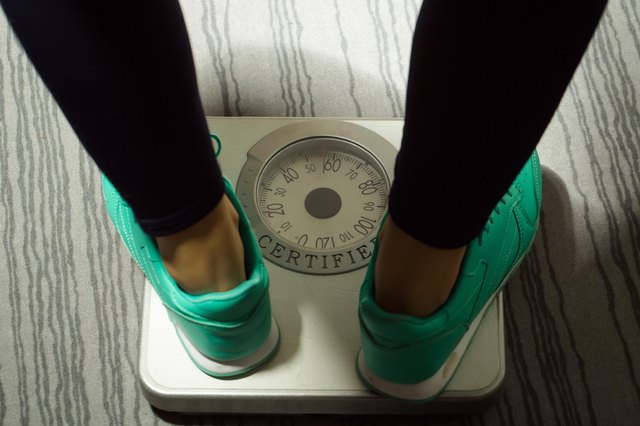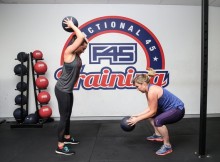How to get money value from a personal training
Advertisements

Advertisements
when you register as a gym member, you will usually receive free personal training courses. You may avoid these free meetings for fear of selling, which may or may not wait for you at the end. Or maybe you can only prove that one personal training can get you on track (or back on track). So, is it worth just one course of treatment? Of course! Here are 10 tips for your coach to maximize your time and get you to your fitness goals.
to fully enjoy the benefits of any exercise, eat a small meal or snack containing carbohydrates and protein 30 to 45 minutes ago. A piece of whole wheat bread with peanut butter or Greek yogurt with berries will do. You can also eat a healthy meal two to three hours before exercise. Supplementing your body with the right amount of nutrition and good food will help stabilize your blood sugar, which will help your body survive the next 30 to 60 minutes of strenuous exercise. If you don't eat enough before exercise, you may feel dizzy, nauseous or drowsy. integral: unrey / iStock / gettyimages to prepare for the future single fitness, ask your coach to provide a basic aerobic exercise plan. You will know what strength training moves you should do, according to the coach's advice, from the training course, but you also need an aerobic program. Your week should include three days of cardio and two to three days of strength training (depending on your goal). Be sure to tell your coach what type of aerobic exercise you like. If your sweat training isn't enjoyable, you won't do it. You may find that you really like spinning classes or Barry studios in your neighborhood. Tell your coach what kind of classes you like, and they can make your aerobic program based on these types of training. Credit: Adobe stock / javiandy Credit: Adobe stock / halfpoint in addition to the exercises selected by the trainer for your training, pay attention to the rest time between the two groups. Both short and long breaks have their own place and purpose, so you need to make sure that they are in line with your goal. Shorter breaks are often used to build endurance and stress cardiovascular health. If you lift weights, a long rest will give you more time to recover. you want to get back to the level you can handle the next set of games, but don't relax so much that you can't push yourself. When someone pushes us, we tend to sweat more. The next time you go to the gym alone, pretend that your coach is still encouraging you to go beyond yourself. Can you work harder? Probably. Credit: body fat percentage, body weight and BMI will be checked in almost every primary individual training course. Use this information as a motivation to get close to your fitness goals. Keep in mind that these statistics should be checked on different schedules. Body fat should be checked every other month. Check your weight once a week or every two weeks, and check your BMI once a month. You should pay close attention to your body fat percentage and keep it within the health parameters listed below. If your goal is to be stronger, you may also need to record how much weight you lift each time you exercise. Credit: Adobe stock / tverdohlib Credit: half point / iStock / gettyimages each first training session involves setting goals for customers. It's a perfect opportunity to set an achievable fitness goal (or figure out what that means to you). You will also have a fitness professional to listen to your goals and help you set a schedule for your goals. Do you want more energy? Do you want strong legs? Want to run 10K? Set these goals now and hold yourself accountable for achieving them. Credit: Adobe stock / halfpoint you have your trainer's ears, so now ask all your burning fitness questions! Ask him or her how long he or she wants you to reach your fitness goals. Want to lose 10 pounds? The coach should set it up for youPlan a plan to get you there. Ask if you do a certain sport, or if you should be in the gym for a few days a week. Ask him or her what his or her favorite exercise is to get a stronger core or tension arm. Or ask yourself what he or she is qualified for, how long he or she has been a coach, or why he or she wants to be a coach. Knowing your trainer will help you better understand the training they created for you. points: wavebreakmedia / iStock / gettyimages Credit: Adobe stock / sergeycash Advertisements
2. Ask for an exercise program

3. If time permits, review your food diary, share with your trainer all the food you've eaten in the past three days, or summarize the diet of the day. There are many applications that can find nutritional information for each food, eliminating the guesswork of counting calories. Myplate is one of the best apps, and you can even find food in popular restaurants. When sharing your food diary with a trainer, he or she can identify weaknesses in your diet, such as dessert after dinner or sugary drinks from your favorite coffee shop. You mistakenly think that healthy food may interfere with your weight loss goals. Try it! Learn more about myplate, livestrong.com's free calorie tracking app. Find a form to check if you've been doing the same exercise for years in a row. During the training, your coach will pay close attention to every movement. Poor condition can lead to aiming at the wrong muscle at the best and injuring at the worst. So, in addition to what your coach plans, let him or her watch you do some of your exercise. Squats, lunges, lifts and push ups are good ways to get feedback. Use what you've absorbed in your training for the rest of your training. When you are in good health, you will build lean muscles faster and make contact with the right muscles to reduce the chance of injury.
5. Pay attention to the rest time

6. Record important data

7. It is very difficult to be completely honest in front of a completely unknown person. But be honest about your lack of motivation or some of the challenges you face during exercise. Maybe it's long hours of work that makes you depressed or sleepless. Now it's time to figure out why you're getting less exercise. You'll get someone else's attention and freedom to share your weight loss fight out loud. The coach is the last person to judge you because they really want to help you change your life. Keep in touch with them and with their help, you can create daily and weekly goals for your health.
8. Define realistic goals

9. Ask the right questions

10. Don't drink. Put sleep first. Make the most of your time and money. Don't drink too much Margarita the night before exercise. And make sure you run in seven to eight hours of sleep so you can exercise without fighting fatigue. Because of these factors, many of the training was unsuccessful and ended ahead of time. What do you think of yakobchukolena / iStock / gettyimages? Have you ever worked out with a coach? What helps you the most? What doesn't help you? Do you want to go to the gym? Or maybe you wonder if just one session will help you achieve your goals better. Do these suggestions help? Do you have anything else to add? Share your thoughts and suggestions in the comments below!









